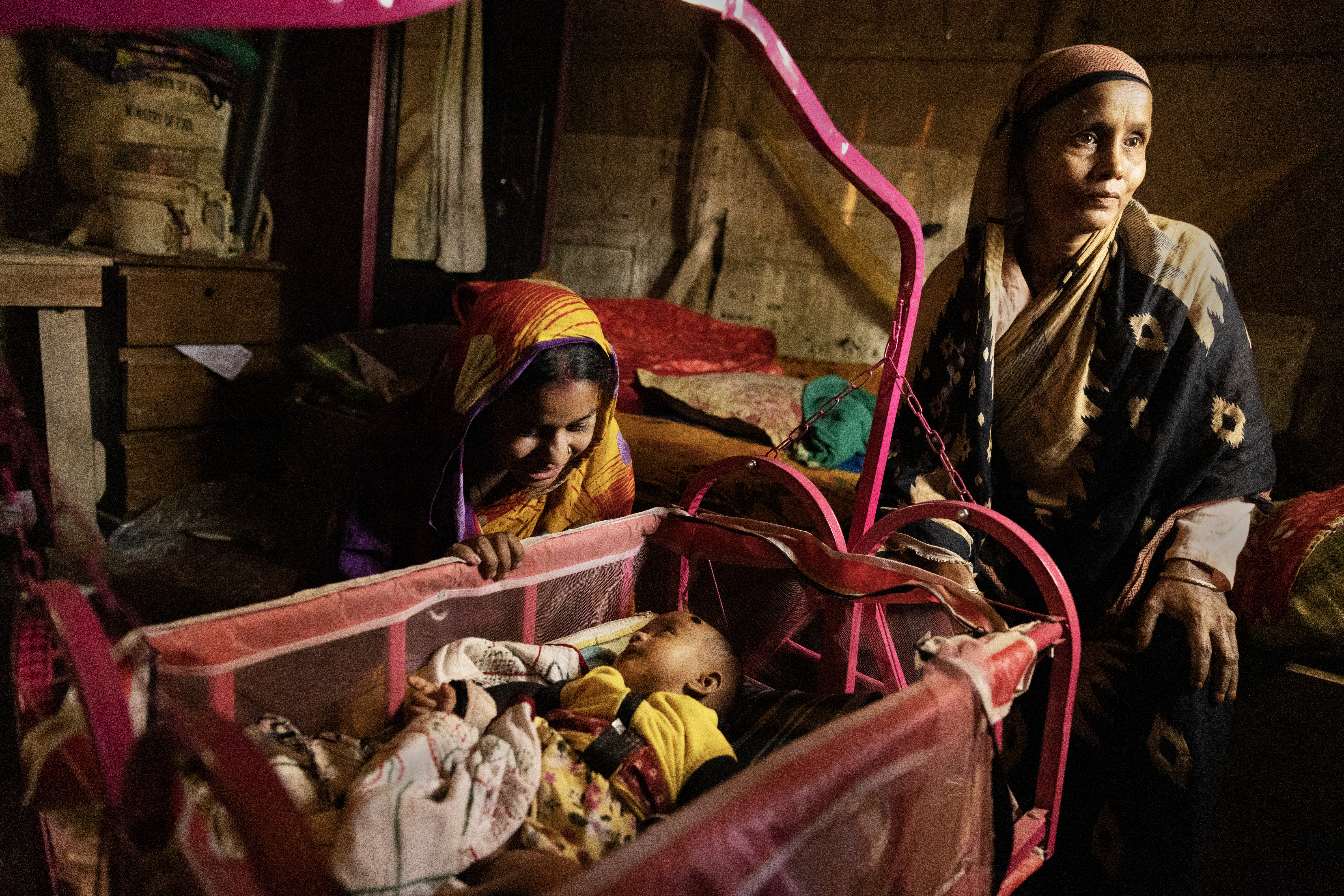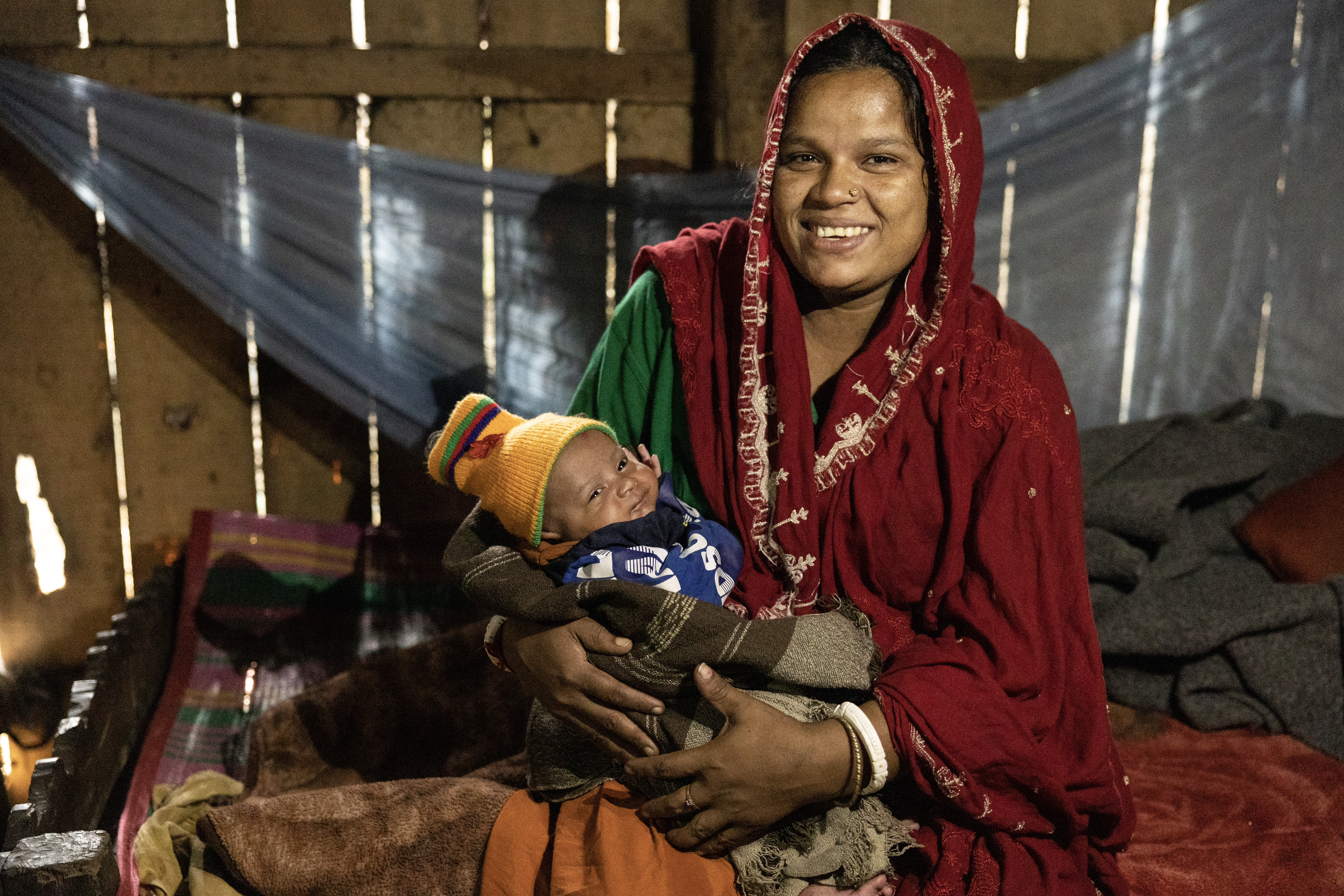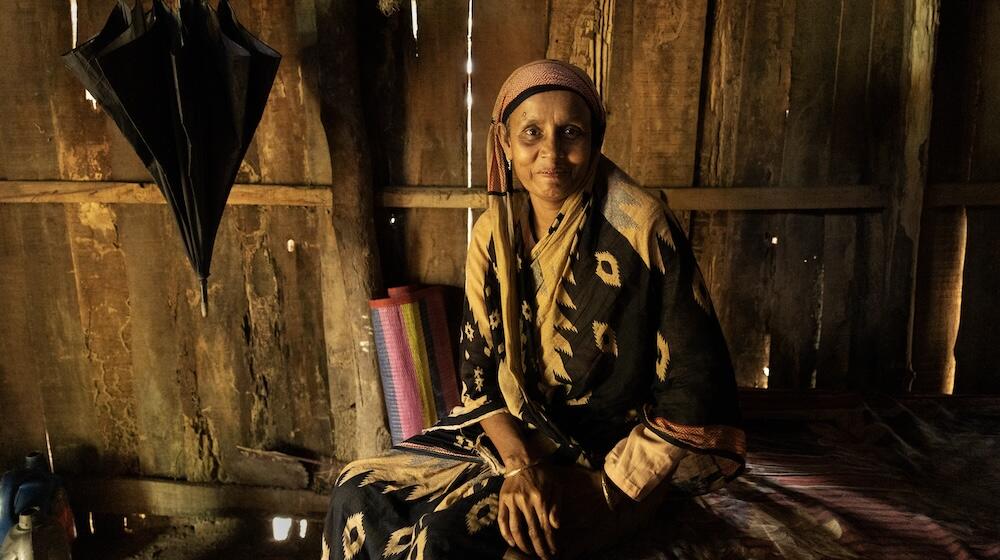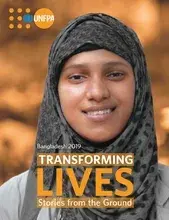In the Bandarban division of the Chittagong Hill Tracts in Bangladesh, pregnant women face significant challenges in accessing transportation and healthcare due to inadequate infrastructure. Furthermore, this remote area is prone to flash floods, which are exacerbated by climate change. A severe flash flood in August 2023 severely restricted access to essential services like food, shelter, and medical care for the affected communities.
In ordinary times, the women and girls in Bandarban often refrain from seeking sexual and reproductive health services at health centres due to poor roads, transportation issues, and economic constraints. Many prefer to have their babies at home to avoid the challenges associated with seeking professional healthcare. Climate change exacerbates the situation by adding an extra dimension to the difficulties faced by women in these remote communities, who can expect more frequent and more intense storms and floods in the years to come.
UNFPA has been active in Bandarban to increase women’s access to professional healthcare, focusing on sexual and reproductive health and rights. When the flash flood struck, it had a profound impact on pregnant women in Bandarban, many of whom felt unsafe and worried for their children. Many women sought refuge in homes located in the hillsides around the village.
Chompa Nath, a young expectant mother, had planned to deliver at home, but her house was destroyed in the flood and she had to seek refuge. Another mother of three, Sapna, also lost her house. She said,
"It was a terrible experience when the sudden flood swept away all my things, and I had to take shelter on the hill behind our house. At that moment, it was the safest space to survive. I was very worried about my unborn baby."
Hasen Banu, a 47 year old woman, also lost her home to the flood and faced a personal economic crisis after the sudden and severe flash flood, the worst that she had ever experienced. As a widow and head of her household, cash assistance from UNFPA greatly helped Hasen and her daughter to meet their basic needs in the aftermath of the flood. And even more so, she was able to give back to the community in this trying time.

Hasen Banu is a traditional birth attendant, known as a Dhai, and has been a great source of support for women in her community for decades. In August when the disaster occurred, Hasen was contacted for both Chompa and Sapna’s early stages of labour, in her capacity as a traditional birth attendant. Critically, something set Hasen apart from other traditional practitioners - she had been given training on safe birthing practices from a local NGO. When Hasen observed complications during the Chompa and Sapna’s deliveries, Hasen knew that she should immediately refer them to the Upazila Health Complex for skilled care. Both women safely delivered their babies with the help of professional midwives.
“‘I love to help women, following in the footsteps of my mother who was also a Dhai. Now that we have professional midwives, I can refer women to give birth safely at the Upazila Health Complex in Bandarban.”

The local population in Bandarban is adapting to the new climate reality. These three women, Chompa, Hasen, and Sapna, share their stories of resilience in the face of adversity. These stories highlight the crucial role of trusted community members like Hasen Dhai, who saved lives by referring these women to give birth safely with professional midwives at modern healthcare facilities.
The UN Central Emergency Response Fund gives life-saving assistance to women and girls affected by natural disasters. Through the help of UNFPA’s volunteers, many vulnerable women and girls in Bandarban have received life-saving cash, dignity kits, MHM kits and baby kits, to support their return to normalcy with dignity.





